On the table this week
Maria of Hungary
Tormenting Thurston
This week Cromwell is annoying my dear Thurston with plans for a newfangled frippery that nobody needs in the kitchen: ‘…a spit driven by system of gears and pulleys, which uses the fire´s draught to turn the meat at a steady speed’. Thurston doesn't want to hear about it, after all, what are kitchen boys for and this giant strange machine certainly isn't needed in his -not Cromwell´s- kitchen.
For the royal councillors and the French ambassador, there are fine things to eat when they come to Cromwell for dinner: turbot as a starter, followed by “Lombard pasties” (baked deboned young guinea fowl) and a cress salad dressed with vinegar and oil, followed by salmon roasted with orange zests.
Detail Still Life with fruit, drinkings cups and pie by Jan Davidsz de Heem, 1651
Eustache, Diplomat and Importer of Delicacies
Eustache not only gives Cromwell the finest olive oil as we read recently, but he also sends him 200 oranges this week. From a culinary point of view, an alliance with the Emperor at this time makes much more sense for every gourmet in England than with the French (sorry, France). Eustache simply has much better resources of supply and trade with Spain, the Netherlands and parts of Italy at his disposal.
I have been thinking this week in what relationship Cromwell and Chapuys are: I wouldn't call them friends, this is not what they are. They are both far too much political servants to their masters, always having political moves in mind and always on guard against each other. But I think they both have respect for each other. In another future they might have become friends after their retirement.
Still Life with Oysters, fruits, flowers, wine glass and porcelain bowl by Elias van den Broeck (1657-1708)
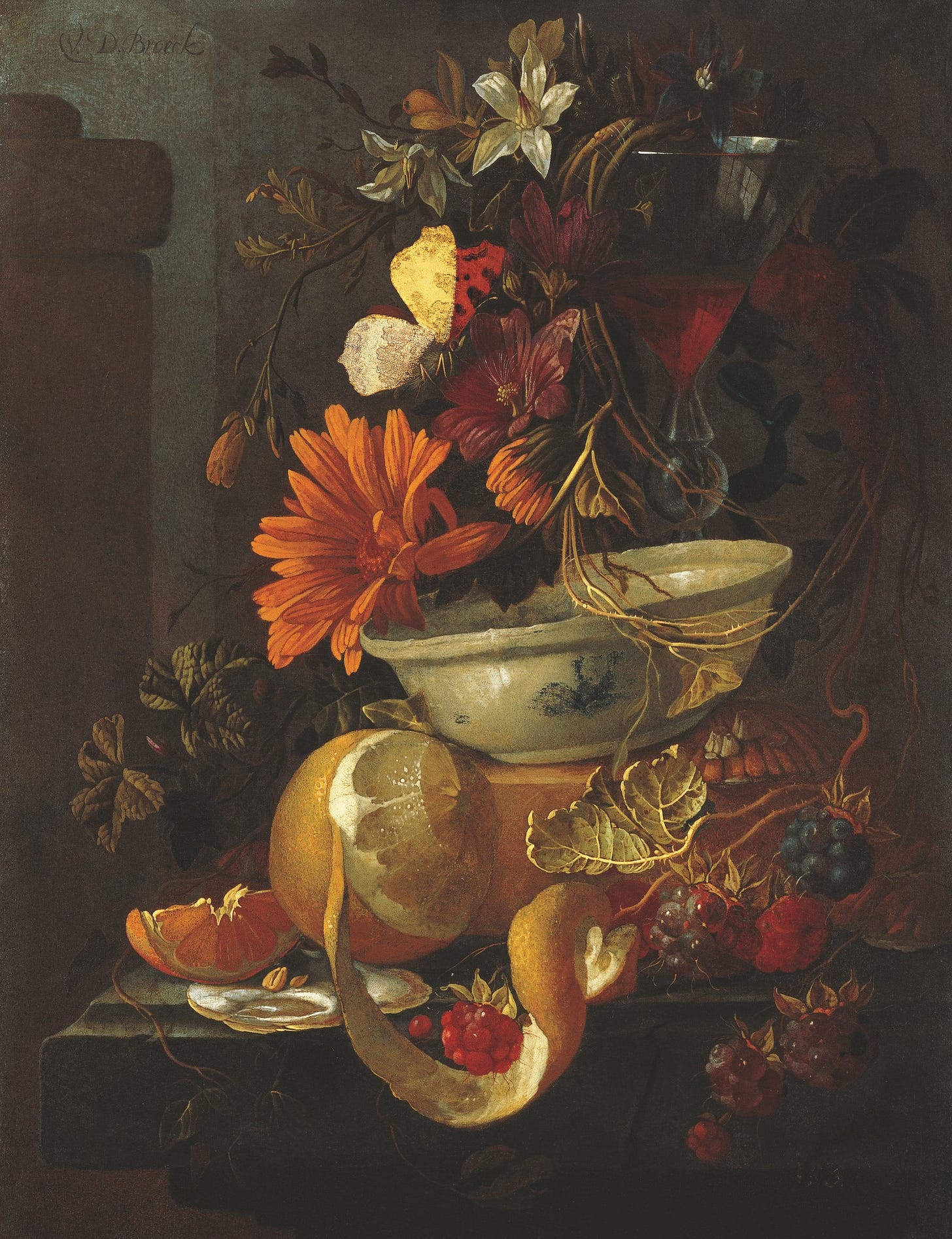
‘Water his Wine’
Henry should lose weight for health reasons, say the doctors. I'm not sure if they dared to tell him directly or just told his councillors, especially Cromwell, and trusted him to tell the king.
Halloween with Count Vlad Cromwell
Recipe for a long life? Ask Cromwell, he knows it: ‘One must eat the meat of the viper, nutritious and light. And drink blood.’ Human blood. ‘And when you have got your foaming beaker of it, powder it with gemstones, just as one powders milk with nutmeg.’
Maria of Hungary (1505-1558)
Christina, Duchess of Milan, is living with her aunt in Brussels when she is brought into play as a possible marriage candidate for Henry. Who was this aunt? A quite remarkable woman: Maria of Hungary grew up in Mechelen with her brother Charles V and her other siblings (except brother Ferdinand1).
In 1515 she was married to the heir to the throne of Hungary and Bohemia, Louis. In 1521 she was crowned Queen of Hungary and in 1522 King of Bohemia. In 1526, disaster struck in the Battle of Mohacs against the Ottoman Empire: Ludwig and many of the Hungarian nobels died. Maria's brother Ferdinand, who was married to Ludwig's sister, inherited the crown of Hungary and the crown of Bohemia through his wife.
Maria as Queen of Hungary by Hans Maler zu Schwaz, 1520
Maria refused to remarry (her brother Ferdinand had the Scottish king among others in mind for his sister) and, at Emperor Charles' request, she accepted the governorship of the Netherlands in January 1531, which she led successfully and prudently.
Maria of Hungary after Jan Cornelisz Vermeyen, first half of the 16th century
After the abdication of Emperor Charles V in 1556, Maria also gave back the governorship and went to her brother to Spain, where she died in 1558.
Maria of Hungary, between 1550 and 1560, Anonymous (I have included three of paintings of Maria in this post because they show Maria throughout her life, from the young 15-year-old girl to the end of her life.)
Ferdinand grew up in Spain and was actually ‘Spanish’ in his socialization in contrast to Charles. When he inherited the Archduchy of Austria as part of his Habsburg inheritance after the death of Emperor Maximilian, he was called "the Spaniard" there and they were not very pleased with him and the Spanish court entourage he brought with him. (The fact that he countered the rebellious Austrian estates with harsh measures, including having the mayor of Vienna executed, did not initially boost his popularity either.)




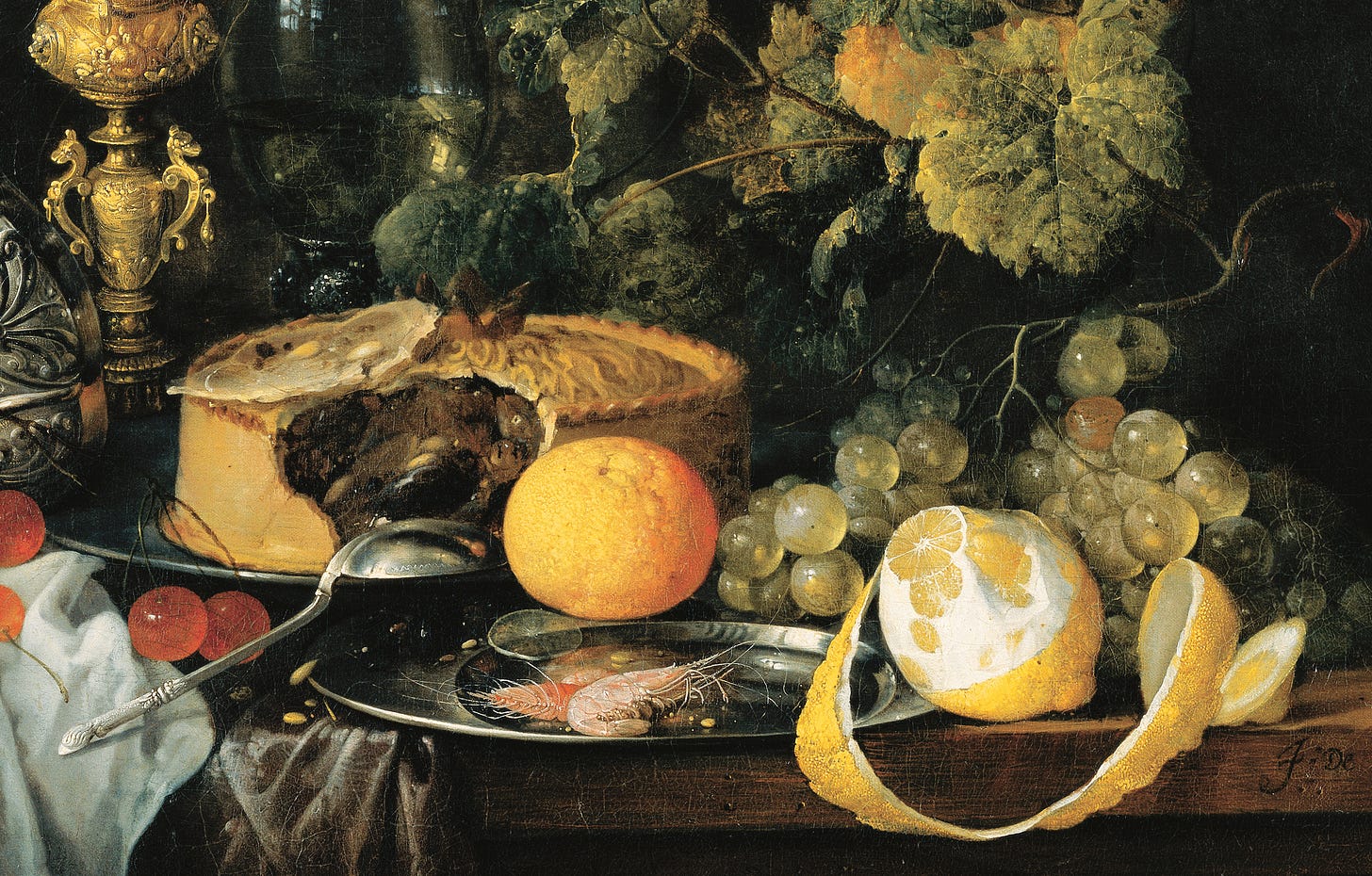
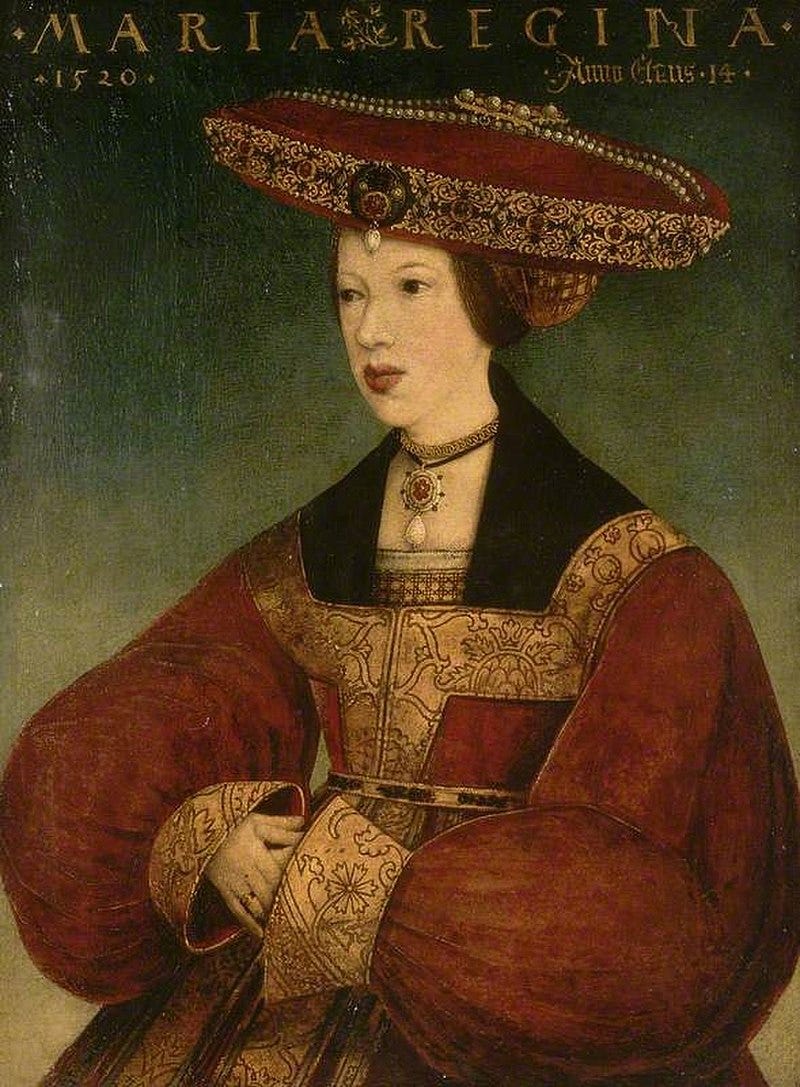
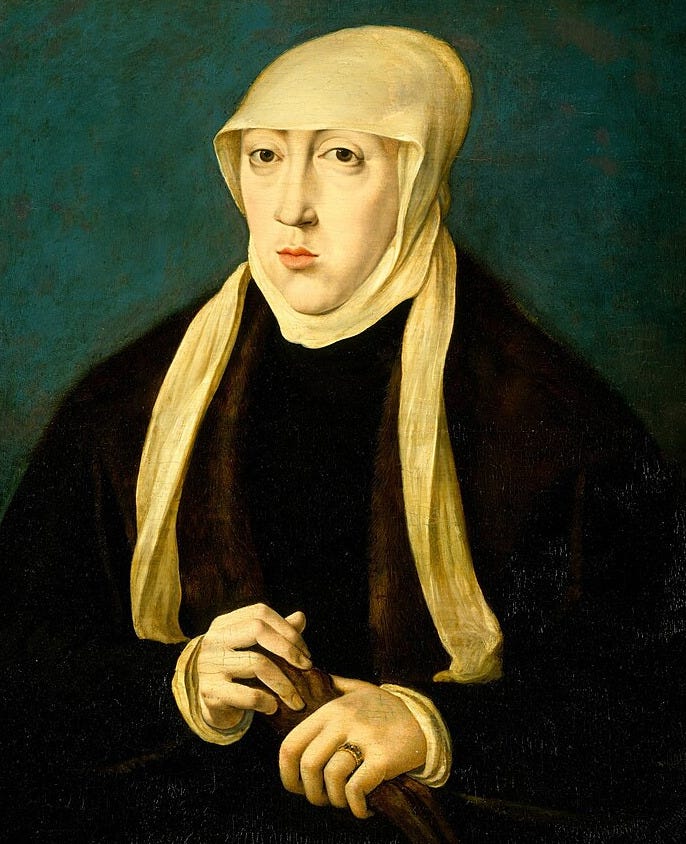
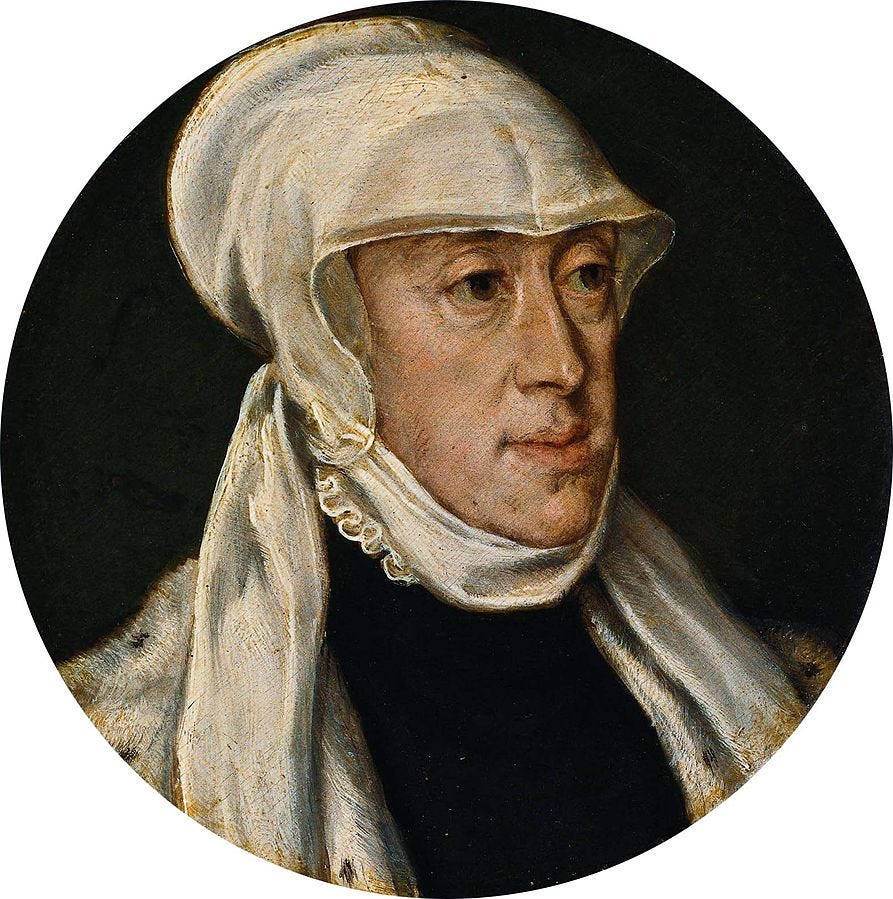
Thanks for the heads up on Maria of Hungary. I must read more about her. It was an interesting custom that the Habsburg had of appointing their female relatives to administer the Netherlands.
Glorious as always.